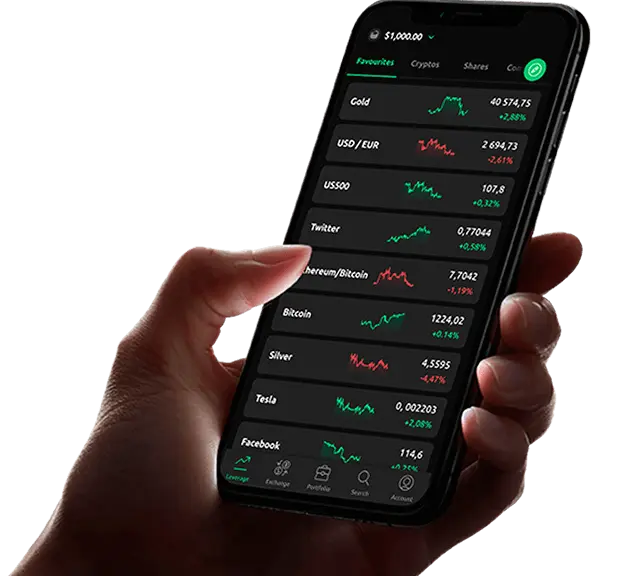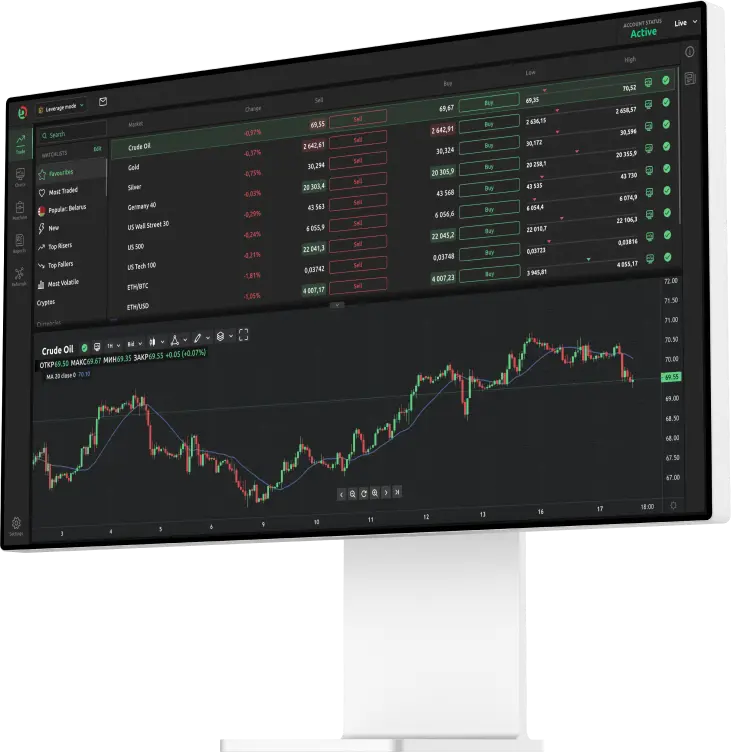Is commodities trading safe? Yes, it can be, whether you are a novice or experienced investor. Here we look at four ways to make money in commodities

Commodities have been an important investment asset since the beginning of human civilisation because they are basic goods that people will always need.
Given the world’s limited resources and the rapid growth of emerging markets, some have predicted that a sharp rise of commodities prices will be inevitable in the future.
The current commodities market is high risk, but also high reward.
Here we look how to invest in commodities safely whether you are a novice or an experienced trader.
How to make money from the commodities market
The main advantage of commodities investments is that their performance is not strictly dependent on the equity and bond markets. This reduces the overall risk for investors who want to build a diversified portfolio.
Another advantage of commodities is that they offer investors the ability to shield against inflation. As prices rise and goods become more expensive, commodity prices also go up.
On the other hand, their prices are among the most volatile of any market due to their sensitivity to unexpected risks such as strikes, harsh weather, terrorist attacks and natural disasters.
For this reason, commodities investors have to regularly keep abreast of what is happening in the world.
Novice traders should monitor data for GDP, unemployment and retail sales for clues about the strength of the economy. While strong data often coincides with rises in industrial commodity prices, weak data can lead to lower prices.
One exception to the highly volatile nature of commodity prices is gold, which also serves a function as a reserve asset for central banks and is viewed as a safe-haven asset at times of financial market stress.
Returns on commodity investments are also impacted by changes in the exchange rates between foreign currencies and the US dollar, the benchmark pricing mechanism for most commodities.
Since commodity investing is extremely volatile, commodity traders try to anticipate the future price of raw materials and attempt to profit from fluctuations in the prices of these items.
What can be traded in the commodities market?
A commodity investment could be the direct purchase of raw goods such as grains, pork, soybeans, gold or oil. It also could involve contracts for future delivery, or even indirect investments through stocks and funds.
Investors who want to know how to make money in commodities have four main options to consider.
Investing directly in commodities
The oldest and most direct way to invest in commodities involves the purchase of varying amounts of physical raw materials and reselling them when the price is right to make a profit.
Unless the direct investment involves buying precious metals, which are easier to store and cheaper to insure, it’s not a suitable method for small investors.
Another downside of direct ownership is that transaction costs are expensive. For example, a gold dealer might charge a mark-up of 2% or more to sell a coin, but then offer a price below market value to buy it back.
As a result, direct ownership is more suitable for long-term investments, where transaction costs are minimised by making relatively few trades.
Investing in commodity futures
Commodity futures are an easier way for individual investors who want to make money in commodities because they can own an asset without taking control.
A futures commodity contract is an agreement to buy or sell a particular commodity at a pre-determined price at a specified time in the future.
The mechanism for futures contracts is simple: when commodity prices go up, the buyer of the futures contract gets a corresponding increase in the value of the contract, while the seller suffers a corresponding loss. When the price goes down, the seller of the futures contract profits at the expense of the buyer.
These contracts are used by companies to lock-in the price of a particular good that they need for their business if they are concerned its price will rise in the near future.
Commodity producers also rely on futures contracts to ensure that they get the price they want for their commodities if they are concerned about future price declines.
Investing in futures requires a high level of sophistication since factors such as storage costs and interest rates affect pricing, in addition to supply and demand.
Futures contracts aren't suitable for many investors who want to make money in commodities because they require taking considerable exposure to a given commodity. For example, the minimum purchase for a single gold futures contract is 100 ounces, or more than $183,000 at current prices.
Buying shares of commodity producers
Buying shares of commodity producers is a popular way among experienced investors to invest in commodities. Equities are easy to trade and less prone to volatile price swings than futures.
Investors wishing to enter the oil market have the options to invest directly in drillers, refineries, tanker companies or diversified oil companies, while those keen on solar power should look into solar panel manufacturers.
This method is the most indirect way of investing in commodities because investors get exposure not just to a specific commodity and its price performance, but also other factors like the company’s management skills, its market performance and ability to generate returns for investors.
However, a given company won’t always see its value rise or fall in line with the commodity it produces. For example, an oil exploration and production company will benefit when crude oil prices rise and suffer when prices fall. But it could see its share price shrink if production from its oil fields is disrupted or fails to meet forecasts, even if oil prices are soaring.
Large, diversified commodity producers tend to be a safer bet for novice investors because their activities are spread out across different raw material and geographical areas.
BHP Group – which operates in 25 countries and extracts various commodities from oil, gas, coal and copper to iron ore – is one example of a commodity stock that spans the globe.
Investing in exchange-traded funds
Exchange-traded funds (ETFs), along with exchange-traded notes (ETNs), trade like stocks and allow investors to get exposure to commodities without investing directly in physical commodities and futures contracts
A commodity ETF can be usually focused on either a single commodity or on futures. Other commodity ETFs track the performance of a commodity index that includes several individual commodities.
There are also commodity stock ETFs that own shares in companies in the same commodity sector.
Investors are free to buy and sell at any point during a trading session at whatever the price is at the moment based on market condition, without a minimum holding period.
ETFs provide a low-cost way to access direct commodity investments and futures trading, which might otherwise be difficult to invest in, and can help investors diversify their portfolio.
They are usually the preferred method of those who have recently stepped into commodities investing.
Mutual funds are another indirect method of commodities investing that is suitable for novices.
Investing in mutual funds
There are several mutual funds that track certain commodities or segments of the commodities markets, while others are actively managed.
In the case of managed funds, managers spend money on analysts, economic and industry research as well as company visits to pick potential investments. This means mutual funds are more expensive to run – and for investors to own – than ETFs.
The fund shares may be affected by factors beyond commodity prices, including stock market fluctuations and company-specific risks.

